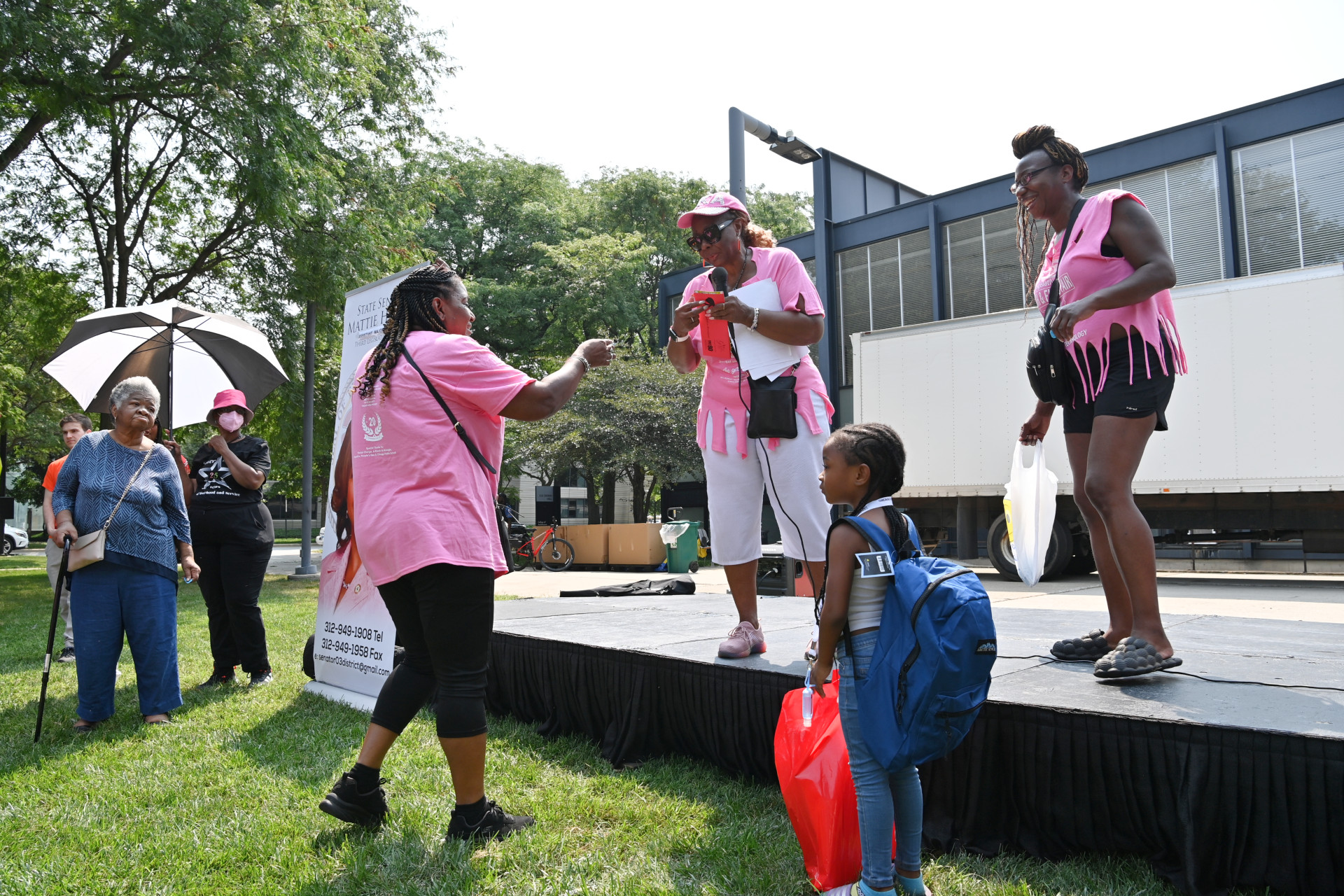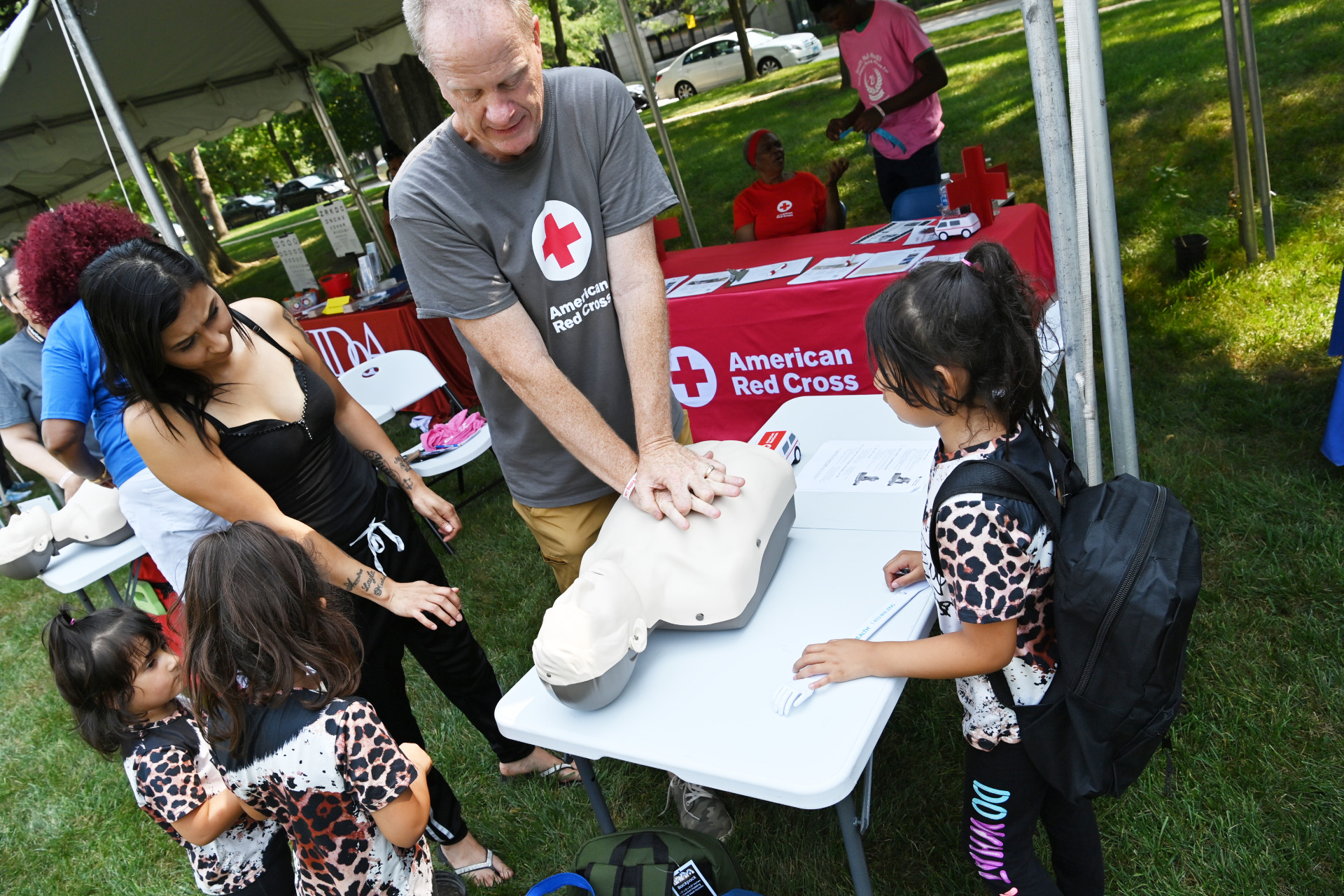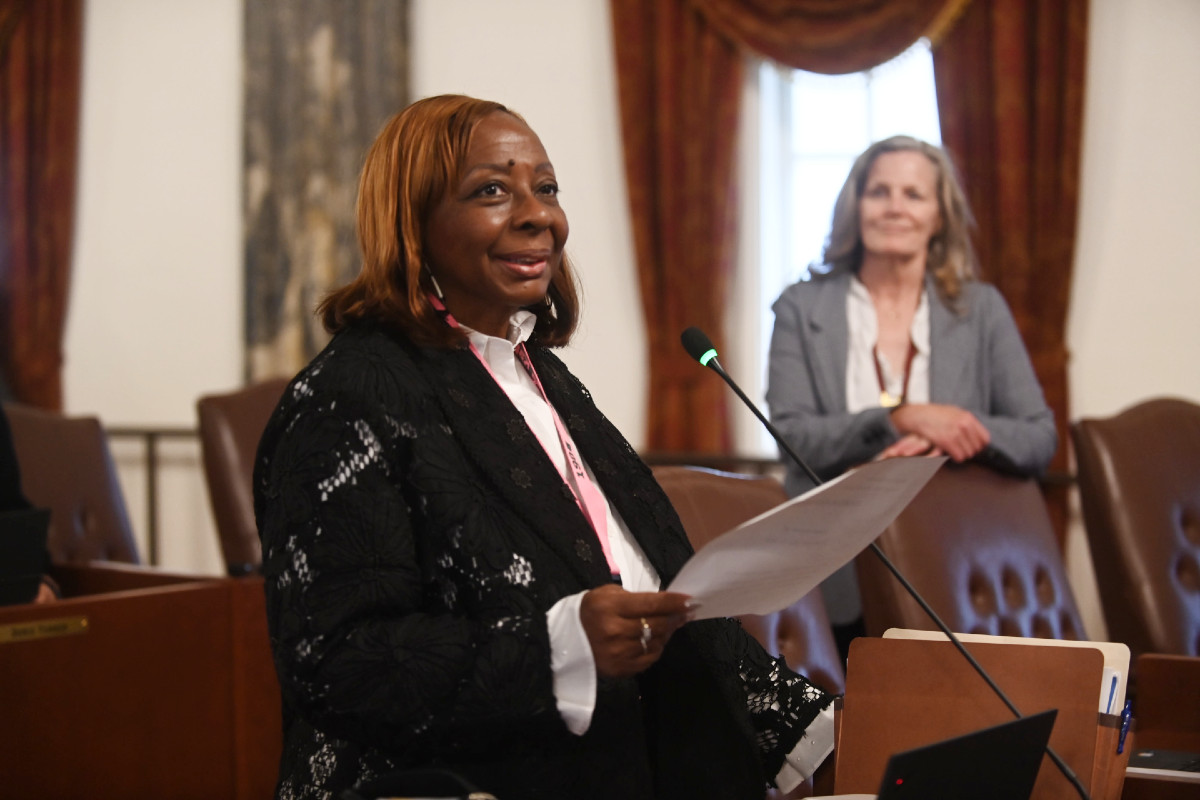Hunter announces funding for local workforce training initiatives
- Details
- Category: Press Releases

“For many people, a workforce training program is the key to landing a stable job and achieving financial stability,” said Hunter (D-Chicago). “From helping people find jobs, to offering the education and support needed to maintain employment, these organizations play a vital role in our community.”
The Job Training and Economic Development program provides workforce training and wraparound services to help bolster equitable workforce recovery for Illinoisans struggling to gain meaningful employment. Funds from this program aim to address the economic impacts experienced by employers and individuals who are underemployed, unemployed or underrepresented who have one or more barriers to employment that are identified as risk factors.
Hundreds served at Hunter’s 20th annual health fair
- Details
- Category: Press Releases
 CHICAGO — State Senator Mattie Hunter celebrated her 20th Family Health and Fitness Fair this month, empowering residents with free health screenings and streamlined access to local and state services.
CHICAGO — State Senator Mattie Hunter celebrated her 20th Family Health and Fitness Fair this month, empowering residents with free health screenings and streamlined access to local and state services.
 "When I hosted my first health fair 20 years ago, it was a small event in a parking lot. We saw about 20 people show up,” said Hunter (D-Chicago). “Now we’ve partnered with Illinois Institute of Technology, using a large, visible outdoor space with more vendors inside. We’ve been able to help thousands of residents over the years achieve better health through education and resources, all while having fun.”
"When I hosted my first health fair 20 years ago, it was a small event in a parking lot. We saw about 20 people show up,” said Hunter (D-Chicago). “Now we’ve partnered with Illinois Institute of Technology, using a large, visible outdoor space with more vendors inside. We’ve been able to help thousands of residents over the years achieve better health through education and resources, all while having fun.”
A champion of health-related legislation, Hunter prioritizes bringing lifesaving health screenings into the community, making them free and accessible to those who are often underserved. The National Kidney Foundation of Illinois stationed its KidneyMobile at the health fair, screening 31 individuals for early signs of kidney disease and diabetes. Students prepared to go back to school with free school physicals offered by St. Bernard Hospital’s Mobile Health Unit, as well as dental exams from Roseland Dental and eye exams from the Illinois Eye Institute and Illinois College of Optometry.
Hunter: Chicago Public Schools to receive $25 million in evidence-based funding
- Details
- Category: Press Releases
 CHICAGO — State Senator Mattie Hunter announced that Chicago Public Schools will receive over $25 million in additional funding to help address the financial challenges of recent years.
CHICAGO — State Senator Mattie Hunter announced that Chicago Public Schools will receive over $25 million in additional funding to help address the financial challenges of recent years.
“Our students deserve the best education with access to quality materials and support,” said Hunter (D-Chicago). “This investment is a step forward in creating equitable learning environments where every child in Chicago and throughout the state can succeed.”
The funding comes from the 2017 Illinois Senate Democrat-backed evidence-based funding formula — an overhaul of the way the state funds K-12 education. The law made school funding more equitable by calculating the needs of individual school districts and basing its state revenue on those needs. The formula takes into account a district’s total enrollment, poverty rate and number of special education or English language learners, among other factors.
Chicago Public School District 299 is set to receive $25,800,109 through the formula. The Fiscal Year 2025 budget invested $350 million in new funding into students’ success through the evidence-based funding model.
For more information on the FY 25 evidence-based funding distribution, visit the Illinois State Board of Education’s website.
Hunter applauds Medicare drug price cuts
- Details
- Category: Press Releases
 CHICAGO — A longtime leader in advancing affordable health care, State Senator Mattie Hunter applauded the Biden Administration’s announcement Thursday that a deal has been reached between Medicare and pharmaceutical companies to lower the prices for 10 costly and commonly prescribed medications.
CHICAGO — A longtime leader in advancing affordable health care, State Senator Mattie Hunter applauded the Biden Administration’s announcement Thursday that a deal has been reached between Medicare and pharmaceutical companies to lower the prices for 10 costly and commonly prescribed medications.
“We’ve watched the cost of living skyrocket, and people simply cannot afford the essentials anymore,” said Hunter (D-Chicago). “This legislative session, I passed a law limiting the cost of asthma inhalers — building on years of work in Illinois to make prescription medication accessible and affordable to those who need it. I am thrilled to see our federal government act with similar priorities.”
The deal will lower the price of drugs used by millions of older adults to help manage diabetes, blood cancers and arthritis, as well as prevent heart failure, strokes and blood clots. Medicare beneficiaries are expected to save $6 billion on the new prices, which will take effect in 2026.
More Articles …
Page 9 of 143


